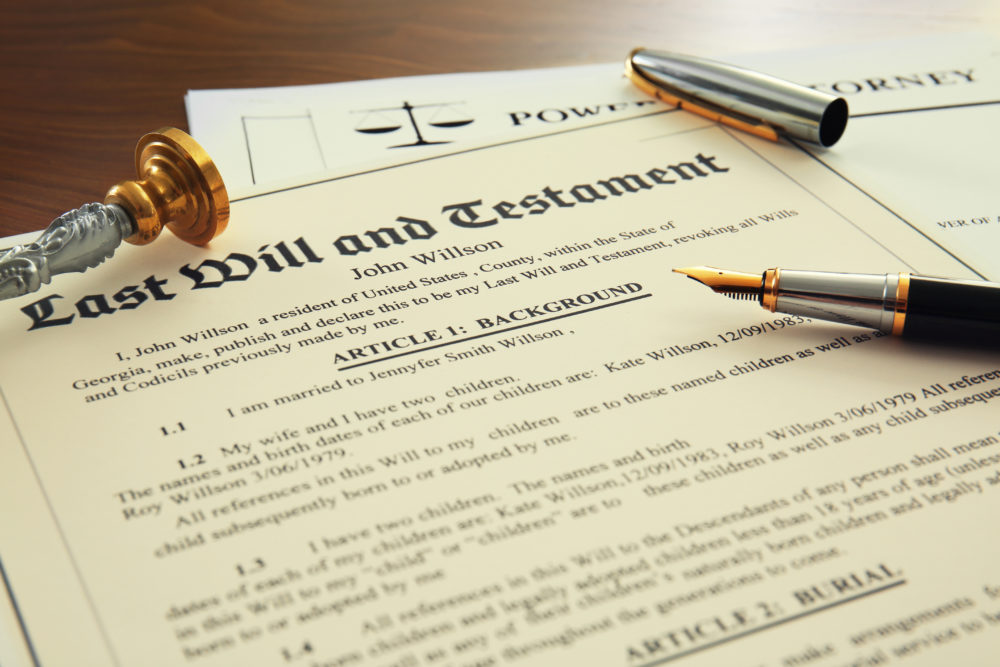
It can be overwhelming to think about your estate plan. Often times, people do not like to think about it the end of life and have difficulty in making decisions. However, it is important to have a plan. A basic part of making this plan involves preparing a will. The following are ten helpful tips to guide you in creating the perfect will:
Choosing how to draw up your will
To begin preparing a will, you should enlist the assistance of an attorney experienced in estate planning. Although there are online programs, you must be aware that there could be significant mistakes made and items you simply did not know to think about. You don’t know what you don’t know!
Choose an executor you trust
It is important to appoint an executor whom you can trust. This person will be responsible for taking care of your estate plan after your death. The job consists of many demanding tasks, including submitting the Will to probate, managing assets, filing of tax returns, paying debts and expenses, and making the appropriate distributions to beneficiaries. You should also choose a successor/back-up executor in the event that your first choice is unwilling or unable to act as executor.
Appoint guardians
If you are a parent who may leave behind children under the age of 18, it is crucial to specify a guardian for them. Otherwise, one would be appointed by the court. You would also be setting up a trust for your children to hold the assets for their benefit until they reach a certain age, as designated by you.
Appoint reliable trustees
If you plan to leave assets behind to a minor, you need to consider appointing trustees. The trustee manages the assets in the trust and makes distributions for the health education and maintenance of the beneficiary until the beneficiary is of age to inherit these assets. The trustee may be the same as the appointed guardian or someone different. You may also use a bank as trustee.
Make specific bequests
If there is a particular individual or charity you wish to leave something to you may do so through a specific bequest, which would be a set sum of money (i.e., $5,000 to my nephew) or a property (my Florida condominium to my daughter). These bequests are made prior to the distribution of the remainder of the estate, known as the residue.
Residuary bequests
The remainder of your estate after the specific bequests are distributed, is known as the residue of the estate. You will name beneficiaries of the residue of your estate with percentage interests (i.e., 50% to my daughter and 50% to my son).
Testamentary trusts
You may leave a bequest in trust. The reasons for creating a trust vary. It may be because the beneficiary is a minor or suffers from a disability. You may also want the bequest protected from the beneficiary’s creditors and/or in the event of divorce. There may also be an advantage if there would be any estate tax implications with regard to the beneficiary’s estate.
Sign your will
It is crucial for a will to be created by following the right legal process with respect to the signing of the document depending upon the state where you reside. This ensures that it is a valid document.
Store the document safely
After finalizing a will, you should make sure that it is safely stored so that it is protected and that your family and/or named executor know where it is and how it maybe can be obtained.
Finally
Do not hesitate to have your will done even though you may be unsure of your decisions. Make the best decisions you can today, knowing that this document may, and often should be changed with different changes in your life. You will feel a sense of relief in knowing this has been taken care of.
Contact our Firm
The planning and administration of an estate requires experienced legal guidance. If you need an effective attorney to assist you with matters of wills, trusts, and estates, or the taxes associated with them, contact Margaret M. Mahon, Esq. LLC today to schedule a consultation.